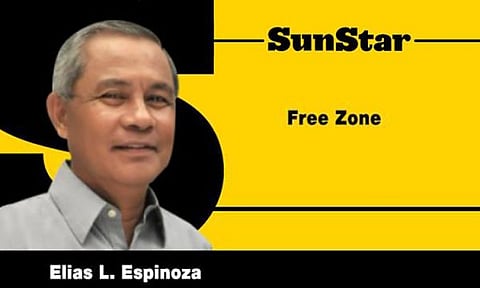

The Commission on Elections (Comelec) promulgated Resolution No. 10695 on Feb. 10, 2021. It set the prohibited acts and the dates of effectivity of these prohibitions in relation to the May 9, 2022 general elections. The very soul of the resolution is to prevent the candidates and those seeking reelection from gaining unfair advantage over their opponents who don’t belong to the administration.
Among the prohibited acts are the appointment or hiring of new employees; creation or filling up of new positions in national or local government offices; and promotion or giving of salary increase, remuneration or privilege.
The controversial part is the prohibition on public works, delivery of materials for public works and issuance of treasury warrants, or similar devices for a future undertaking chargeable against public funds. I say it is controversial because it’s public knowledge that every national or local election, public works, like repair of roads, is a common sight.
Seriously, it’s sadly appalling to think that the asphalt for the roads in our country is of low quality because it would last for only about three years. And, if you’re surprised why there are ongoing public works despite the election ban, ask the engineers at the DPWH (Department of Public Works and Highways) how they do it.
Even worse and insensible is when you notice that the repair is being done on still good and serviceable roads, but the dilapidated roads where the potholes have the size of a crater are left unattended to.
The Government Procurement Policy Board (GPPB) has issued the guidelines to government agencies on the procurement activities during the election period, which is from Jan. 9 to June 8. The GPPB states that “the election ban is not designed to paralyze the operations of the government but to insulate government procurement from political partisan activities, usually in the form of new projects, which are designed to influence the public during the upcoming national and local elections.”
Also, the distribution of aid of whatever kind or nature to the community during the election period is prohibited because that would give unwarranted advantage or benefit to the administration candidates, particularly those seeking reelection, over their opponents.
The plan of Cebu City Mayor Mike Rama to continue the distribution of aid to the victims of Typhoon Odette (Rai) that has been stopped because of the election ban is indeed remarkable if his political interest is set aside.
Rama has said he wanted to continue the City’s aid distribution for Odette beneficiaries amid the ongoing weather disturbances. In a national media interview, he asked the Comelec “not to be onion-skinned and to instead make a clear position regarding the distribution of financial aid to typhoon victims this election season.”
The Department of Social Welfare and Development (DSWD) is the primary government agency mandated to develop, implement and coordinate social protection and poverty-reduction solutions for and with the poor, vulnerable and disadvantaged. To avoid the accusation of taking advantage over his opponents in the mayoralty race and in using the city government funds in promoting his candidacy as well as his partymates, Mayor Rama should instead delegate to the City’s DSWD the unfinished distribution of the aid to the victims of Typhoon Odette that hit Cebu on Dec. 16, 2021.
With only a few weeks away from the May 9, 2022 polls, I suppose the opponents of Rama and his partymates would not take it sitting down if he would personally continue the distribution of the typhoon aid to the beneficiaries.